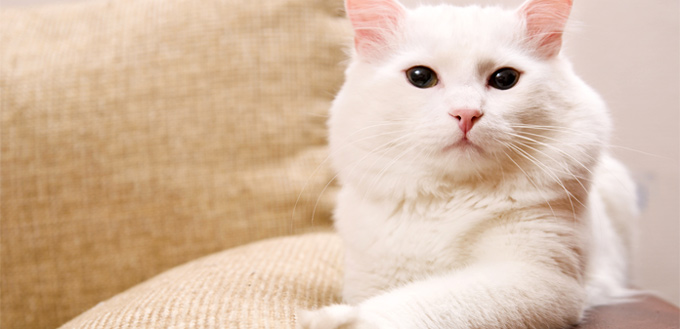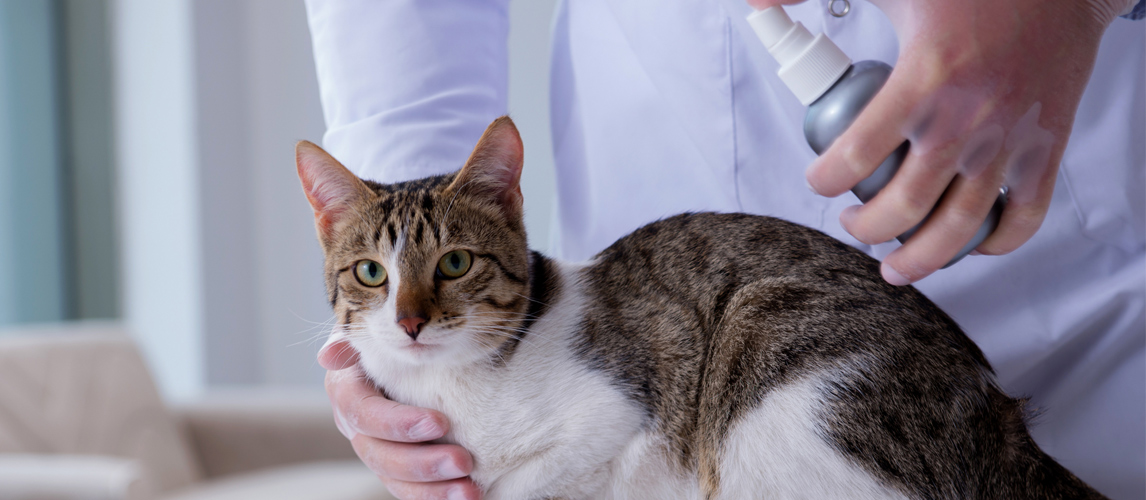Cats who live all or for a significant amount of time indoors are bound to be more healthy than cats who spend most of their time outside, aren’t they? They’re less likely to get diseases or infections, less likely to get into fights or get knock over, less likely to get into any kind of trouble. And if all that’s true, they’re not going to need to go to the vets regularly, because they’re going to really healthy.
Whilst it’s true that cats who live indoors are not likely to need as many flea and worming treatments because they come into less contact with the material that could give them fleas or worms, they need to have their regular vaccinations to ensure that they have as much immunity as possible to diseases. Additionally, if you’re going to want to put your kitty into a cattery at any stage so that you can go away, they will need to have up to date vaccinations to make sure that exposure to other cats doesn’t make them ill.

Quite apart from that, no cat owner should only be taking their pet to the vet only when they notice something is wrong. The very nature of cats, doing their own thing, being naturally private and a bit secretive, means that once you actually notice that they’re ‘not right’, they are likely to have been ill for some time. Regular visits to the vet will ensure that there is a record of your cat’s overall on-going health so that any – even quite subtle changes – will be picked up and addressed quickly.
Specific Medical Issues for Indoor Cats
One of the major issues for indoor cats is boredom, which can lead to a number of problems for them and you.
- Overeating – Bored cats may try and fill some time by eating more, leading to obesity and potentially to diabetes.
- Undereating – On the other end of the scale, bored cats might simply not bother eating very much.
- Sleeping – All cats sleep, but bored cats are likely to sleep more or just lie about feigning sleep.
- Excessive grooming – Cats spend a good deal of their time grooming and cleaning themselves, but bored cats are likely to do it more and it can cause problems with…
- Hairballs – outdoor cats eat some grass on purpose to make themselves sick and clear out the hairballs and other unwanted, hard to expel waste that might be blocking their systems. If you have an indoor cat, consider purchasing some grass specifically designed for growing indoors, for them to eat.
- Boredom can also cause hair loss, so you could find your indoor cat suffering from excess shedding and bald patches.
- Cats who are bored and under stimulated can also display destructive behavior like pulling things apart and scratching furniture.
Schedule some time to play with your cat every day and consider buying feeding balls and puzzle toys to get your cat engaged and having some fun and exercise with and without you. Making sure your cat has fun and interacts with you will make him happier.
Make time for grooming; long-haired cats should be groomed every day and short-haired cats every couple of days. Grooming your cat not only cuts down on the amount of fur they are going to ingest as they groom themselves, it will calm them and engage them with you.
- Lack of sunlight – Unlike humans cats don’t need sunlight to produce vitamin D, they get that from their food. In fact, there is no evidence that cats need sunlight for anything other than the fact that they enjoy lying in the sun soaking up the warmth, so always make sure your indoor cat is eating good quality food for vitamin D and has access to s sunny windowsill or a sunny patch of floor for enjoyment.
Related Post: Best Cat Food for Indoor Cats

How Often Should I Take My Cat to the Vet?
- Young kittens: will need to visit the vet monthly until around 4 months old, then at 6 months for neutering/spaying, then at 1 year for a checkup
- 1-7 years old: Once or twice a year unless there are specific conditions that require treatment/monitoring
- 7-14 years: Twice a year unless there are specific reasons to go more often
- 14 years +: Geriatric cats are likely to have more age-related conditions and so should be seen every 3 months unless your vet is happy that they’re in the good overall health and suggests longer between visits
These are just general guidelines, as soon as you notice anything of concern about your cat you should seek advice from your vet, because often once you notice a cat is ill they’ve actually been ill for a while.
Sources:
- Christina Boufis, Well Visits for Cats, WebMD
- Taking your Cat to the Vet – Traveling with a Cat, VCA Hospitals
- Sarah Lim, DVM, Easing Transportation: 5 Ways to Improve Your Cat’s Trip to the Veterinarian, The MSPCA–Angell
Note: The advice provided in this post is intended for informational purposes and does not constitute medical advice regarding pets. For an accurate diagnosis of your pet's condition, please make an appointment with your vet.






